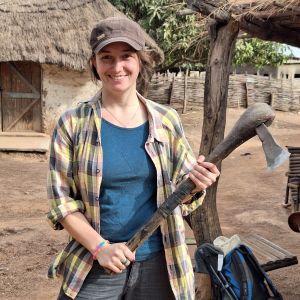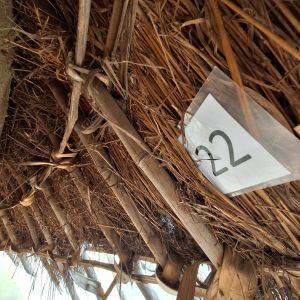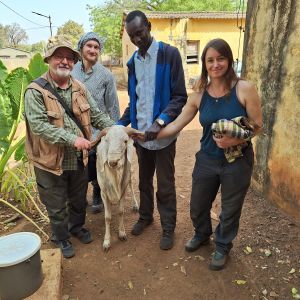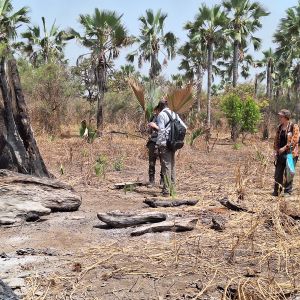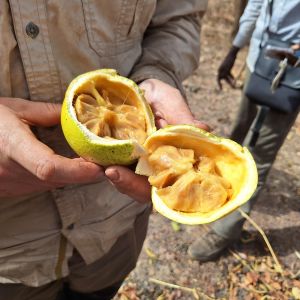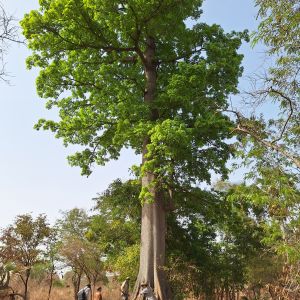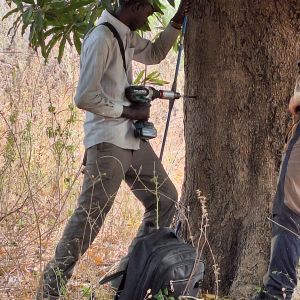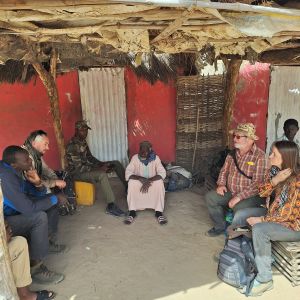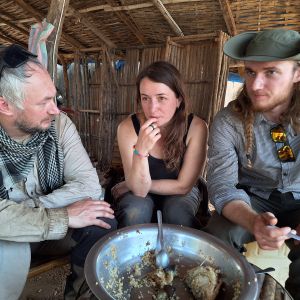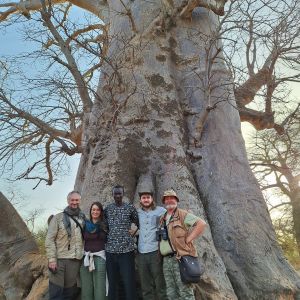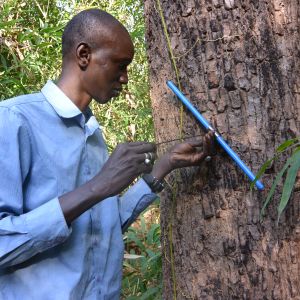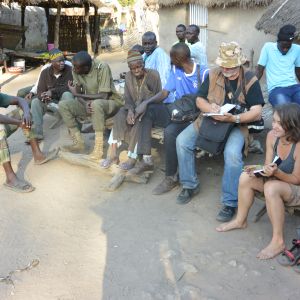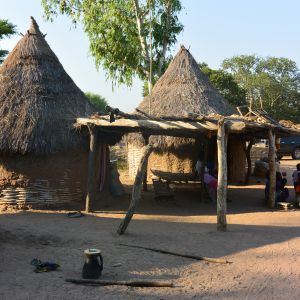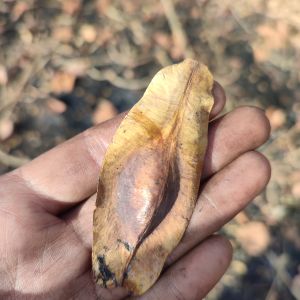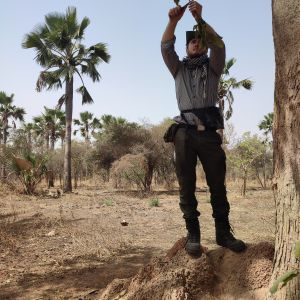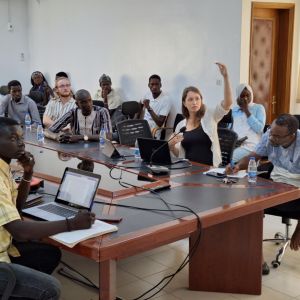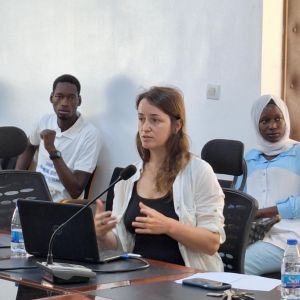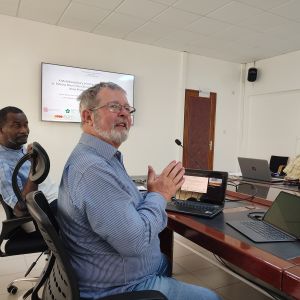USB Scientists Return from Senegal: Exploring the Relationship Between People and Trees with African Colleagues
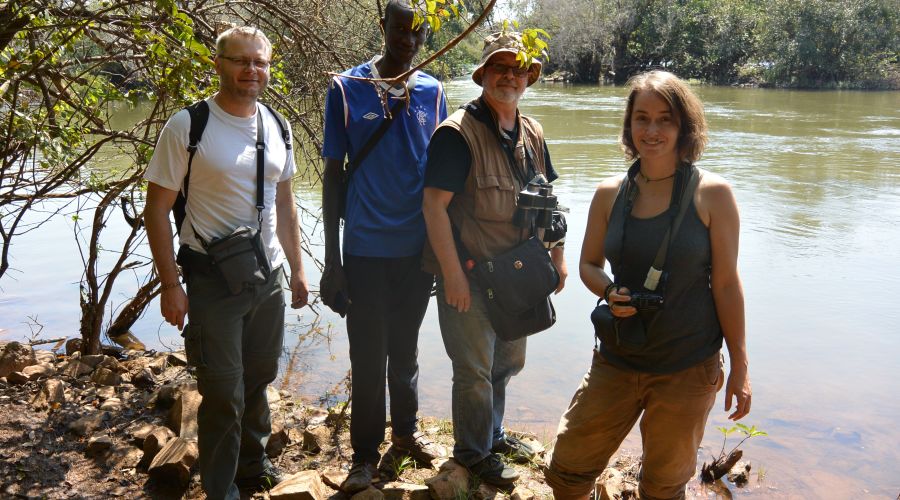
At the beginning of March, an expedition to the Niokolo Koba National Park in southeastern Senegal, approximately 700 km from the capital Dakar, came to an end. The two-week event included anthropologist and ethnobotanist Idrissa Manka from Dakar University, as well as ethnologist Tereza Majerovičová, archaeobotanist Jaromír Beneš, and botany student Michal Hejcman from the Faculty of Science at the University of South Bohemia (USB). A significant addition to the team was dendroecologist Jan Altman from the Institute of Botany of the Czech Academy of Sciences. The expedition to the largest national park in West Africa and the nearby villages was significantly supported by Dakar professor Alioune Deme in terms of organization. Funded by the Erasmus+ program, the expedition aimed to deepen the collaboration between Dakar University and the University of South Bohemia in České Budějovice, which began in 2018.
This fourth expedition was based on the principle of knowledge exchange and mutual learning of various research methods directly in the field, within the environment of tropical deciduous forests and tree savannahs. Idrissa Manka focused on identifying trees in the park and surrounding villages, while the Czech experts collected wood and soil samples for analysis in laboratories in South Bohemia. These analyses include anatomical identification of wood species at the Laboratory of Archaeobotany and Paleoecology at USB's Faculty of Science and a dendrochronological study of trees based on their growth rings, a methodology developed at a highly advanced level at the Institute of Botany of the Czech Academy of Sciences.
During this year's expedition, samples from approximately fifty tree species were collected in the park, as well as materials from traditional wooden structures and everyday items in Senegalese villages. The Czech-Senegalese research focuses on documenting and comparing the relationship between people and trees over the long term and in the context of the current dynamic changes in sub-Saharan Africa. Traditionally, people selectively use certain tree species based on their technical properties. Dominant trees like massive baobabs and kapok trees play a specific role as sacred trees.
The expedition concluded at Dakar University, where Professor Deme organized a one-day professional seminar. The main part of the seminar consisted of lectures by Czech experts. Jaromír Beneš spoke about the connection between archaeobotany and chemistry, while Tereza Majerovičová summarized the current results and future direction of research in the Niokolo Koba region. More than thirty Senegalese students attended the seminar and showed keen interest in the ongoing research. The Czech experts introduced them to the wide-ranging possibilities of modern ethnoarchaeology and archaeobotany. The latter discipline can be studied by selected Dakar students directly in České Budějovice, where the collaboration program has recently been expanded to include the Faculty of Arts at USB.
